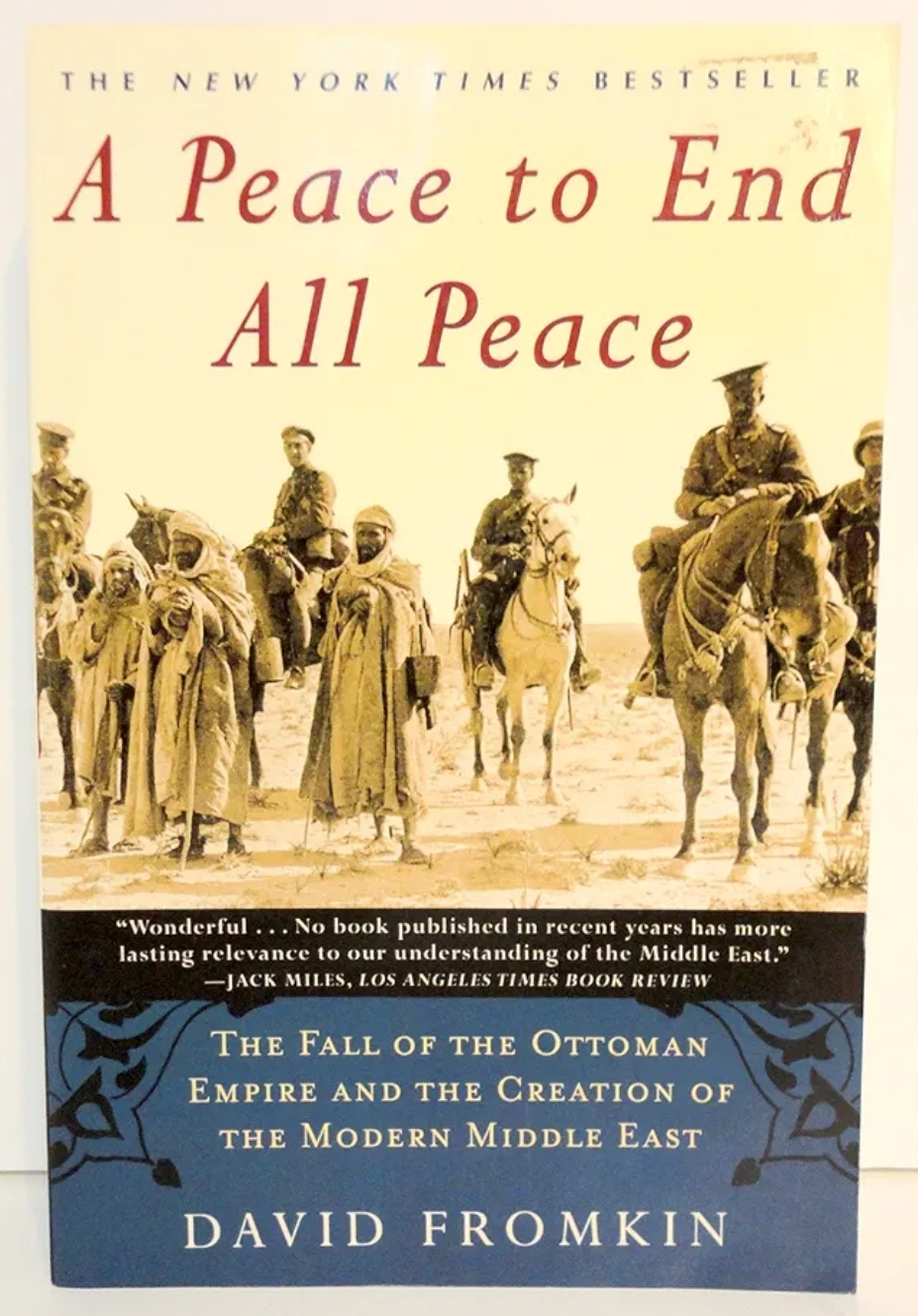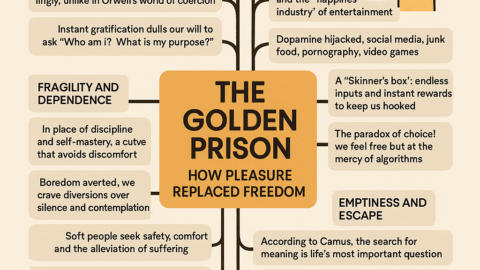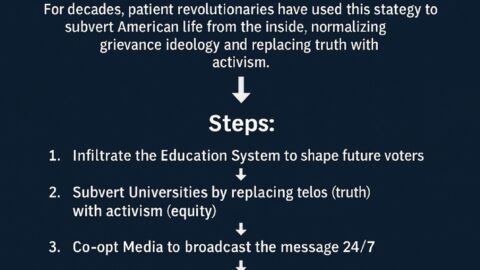David Fromkin’s A Peace to End All Peace: The Fall of the Ottoman Empire and the Creation of the Modern Middle East (1989) is a comprehensive and well-researched account of how the decisions made by European powers during and after World War I reshaped the Middle East, leading to many of the conflicts and issues that persist in the region today. The title of the book refers to the irony that the peace settlements following World War I, rather than establishing lasting peace, created deep political instability that has had long-term consequences.
Key Themes and Ideas:
The Fall of the Ottoman Empire:
- The book details how the Ottoman Empire, which had controlled much of the Middle East for centuries, fell apart as a result of internal decay, nationalism, and its alliance with the Central Powers in World War I. The Empire was already in decline, but the war hastened its collapse.
- Fromkin explains how European powers, particularly Britain and France, viewed the Ottoman territories as strategic prizes to be divided and controlled after the war. The collapse of the Ottoman Empire left a power vacuum that European imperialists were eager to fill.
Secret Agreements and Dividing the Middle East:
- During World War I, European powers made secret agreements, such as the Sykes-Picot Agreement (1916), which outlined how Britain and France would divide the Arab lands of the Ottoman Empire between themselves. These agreements were made with little regard for the ethnic, religious, and political realities of the region.
- Fromkin argues that these decisions laid the groundwork for future conflicts by imposing artificial borders and governance structures that ignored or exacerbated existing tensions among the diverse peoples of the Middle East.
The British Role:
- Britain played a central role in the postwar settlement, making contradictory promises to different groups. For instance, Britain promised Arab independence in return for their support against the Ottomans while simultaneously making agreements with France and supporting the establishment of a Jewish homeland in Palestine (Balfour Declaration, 1917).
- Fromkin provides a detailed account of British leaders like David Lloyd George and Winston Churchill, whose decisions shaped the postwar Middle East. Britain’s conflicting interests and overreaching ambitions often led to poor planning and political mishandling.
Creation of Modern Nation-States:
- The postwar treaties and mandates imposed by European powers resulted in the creation of several new states, including Iraq, Jordan, Syria, Lebanon, and Palestine, with borders that did not align with the historical, ethnic, or religious divisions of the region.
- Fromkin argues that this “creation” of the modern Middle East by European powers laid the groundwork for many of the conflicts that continue today, as these borders often forced together rival ethnic and sectarian groups, particularly in Iraq and Lebanon.
Zionism and Arab Nationalism:
- The book also delves into the rise of Zionism and Arab nationalism, two competing ideologies that emerged as a result of European colonialism and the postwar settlement.
- The Balfour Declaration, in which Britain expressed support for a Jewish homeland in Palestine, is portrayed as a pivotal moment that set the stage for future conflict between Jews and Arabs in the region. Fromkin explores how these nationalist movements clashed with each other and with the imperial ambitions of European powers.
The Paris Peace Conference and its Aftermath:
- Fromkin covers the Paris Peace Conference of 1919, where the victorious Allied powers met to determine the postwar order. The Middle East was just one of many regions affected by the decisions made there, and the European leaders treated it with a combination of ignorance, arrogance, and a desire for imperial gain.
- The conference, and the treaties that followed, especially the Treaty of Sèvres (1920) and Treaty of Lausanne (1923), formalized the dismantling of the Ottoman Empire and divided its lands between European powers and newly formed nation-states.
Legacy of the Post-WWI Settlement:
- Fromkin argues that the decisions made during and after World War I created unstable political structures in the Middle East that would lead to a century of conflict, including the Arab-Israeli conflict, the rise of authoritarian regimes, and ongoing struggles for national identity and political control.
- His thesis is that the post-World War I peace, rather than resolving the problems of the Middle East, created a new set of problems by imposing a European vision on a complex and diverse region without considering the long-term consequences.
Conclusion:
David Fromkin’s A Peace to End All Peace offers a detailed, critical analysis of the collapse of the Ottoman Empire and the subsequent reshaping of the Middle East by European powers. He argues that the decisions made during and after World War I, particularly by Britain and France, led to the creation of artificial nation-states, the rise of new conflicts, and a legacy of instability that continues to affect the region today. The book provides valuable historical insight into the origins of many modern Middle Eastern conflicts and serves as a reminder of the unintended consequences of imperialism and interventionist policies.







